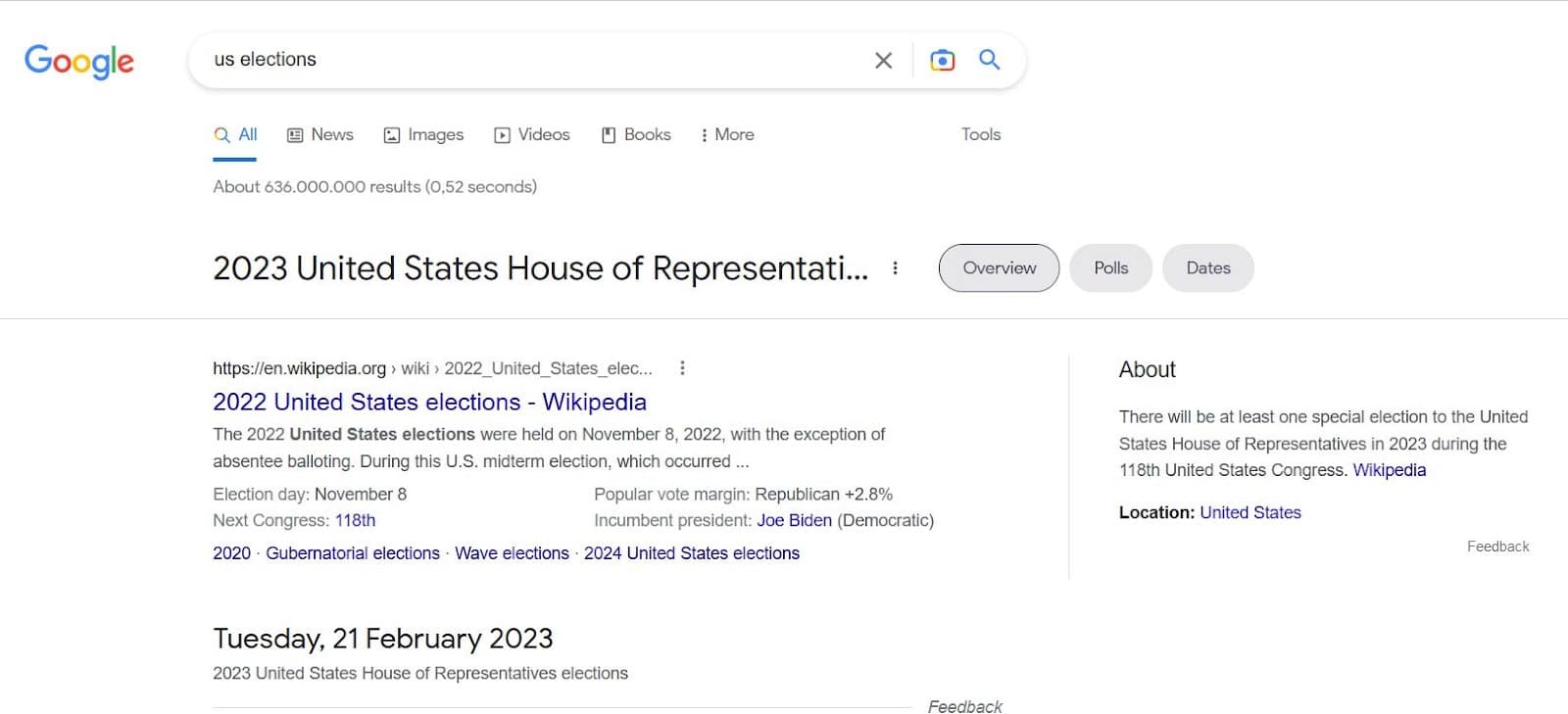Every new year, SEOs, bloggers and publishers are eager to capitalize on “fresh content” ranking boosts by adding new dates to old or existing content.
Google’s search advocate John Mueller again reiterated that only significant content changes should lead to a changed date in articles.
But what is considered significant? And what does it really mean to change a date?
Both depend on many factors. As always, there is middle-ground to cover so let’s dig deeper in this article.
The evolution of fresh content ranking boosts
There was a time when updating content did not help attract visitors on Google. Then over the years, Google increasingly rewarded “fresh content.”
Do you remember the concept of “query deserves freshness” (QDF)?
As early as 2007, former Google SVP Amit Singhal discussed how the algorithm considers searchers’ need for current information.
The QDF model aims to measure, assess and rank content based on its value for a particular (time-sensitive) search query. It was among the first algorithm tweaks meant to take user intent into account.
This meant that less authoritative but newer content would sometimes outrank high-quality but older content because some searches require current results than others.
The example below shows a Google search for [us elections] in January 2023:

When you click the “Overview” button on top, you will get another results page with even more current results covering primarily the latest election that will take place next. (Here the “2023 United States House of Representatives elections.”)
When you search for election results, you most likely don’t want to see results from the past election (even though they have earned many links ever since). You’d want results from this election, which may not have attracted as many links yet in a short time.
In the past, the article date indicated to Google which resource was newer. Only a limited number of keywords were affected at first, and this still does not apply to all search queries.
Some SEOs started gaming this ranking signal quickly. They changed the date automatically, sometimes every day. Others removed the dates to at least not look outdated.
All this forced Google to dig deeper into the actual content’s value.
The Google algorithm has significantly changed since, but QDF is still present among other freshness systems.
“We have various “query deserves freshness” systems designed to show fresher content for queries where it would be expected.”
– A Guide to Google Search Ranking systems, Google Search Central
This is still one of Google’s unique selling points. They have a fresher index compared to Microsoft Bing.
Bing and alternative search engines, still heavily rely on site authority as measured by incoming links and overall trustworthiness. This works fine for some keywords but is stale for others.
What is considered ‘significant’ when updating content?
As Google heavily invests in its helpful content system and other AI-based ranking algorithm tweaks, you can rest assured that it looks beyond just an article’s date.
The good news is that you don’t have to repeatedly write about the same topic at length to produce fresh content. Updating existing content “significantly” may suffice.
Simply changing an article’s date and claiming it is “new” won’t cut it. There’s no misleading Google and visitors.
For me, a significant content change can’t be measured by a percentage or word count.
Changing 50% of your article by simply rewriting it with synonyms or AI-generated content don’t count because your additions do not add value.
Consider the following:
- Does the change signify or mean something new?
- What is the actual indication that suggests this?
- Is it just the date or is it within the content itself?
As an example, I published an article on Google and alternative search engines, which ranked well, especially in 2021.
I was tempted to update it for 2022 to keep it fresh. Ultimately, decided to change the article’s main focus.
In 2019, I wrote about DuckDuckGo. In 2020, I recommended Ecosia as the best Google alternative. In 2021, I suggested Startpage instead. After that, in 2022, I decided to push Neeva.
Each time, I made changes that some might consider minimal. In reality, they are significant in the context of the topic.
- DuckDuckGo is about privacy unlike Google.
- Ecosia supports privacy as well but also plants trees with its revenue.
- Startpage is also about privacy, but it uses anonymized Google results instead of those from Bing like other private search engines.
- Then, I covered Neeva, a search engine built by former Google execs. It offers high quality results and is entirely ad-free.
Some of the changes were about only a few sentences, while the final change to Neeva was the most consequential.
The significant point was the changed focus of the article. I recommended a different search engine as the best alternative each year. (The Neeva business model differs from all other search engines, so I wrote more about it.)
What does it mean to ‘change a date’?
Dates displayed on web articles can be modified in different ways.
Typically, you can change the date displayed within a WordPress article. Some go as far as adding dates in other areas of the page, such as:
- Headlines (e.g., “How to Update Content and Dates for 2023”)
- Titles (“Content Date Changing in 2023”)
While each approach has pros and cons, avoid adding dates to URLs, especially if you plan to change the date later or can’t rule out that possibility.
Even headlines and titles can be tricky. Ideally, add dates only when you know that you will be able to update them next year. Otherwise, the content may get ignored by searchers next year as outdated.
Get the daily newsletter search marketers rely on.
See terms.
This content was originally published here.




